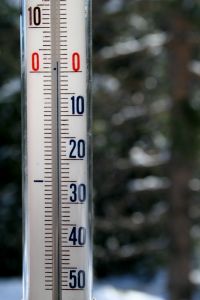

Environment
2013 tied for fourth warmest year on record
Last year tied with 2003 as the fourth warmest year globally since records began in 1880, according to figures from the National Oceanic and Atmospheric Administration (NOAA).
The annual global combined land and ocean surface temperature was 0.62C above the 20th century average of 13.9C. The figure marks the 37th consecutive year that the annual global temperature has been above the long-run average.
Currently, the warmest year record is 2010, which was 0.66C above the average. Including 2013, nine out of 10 of the warmest years have occurred in the 21st century. The global annual temperature has increased at an average rate of 0.006C per decade since 1880; this has accelerated in the last 40 years with each decade experiencing an average increase of 0.16C since 1970.
During the course of 2013, many areas of the world experienced above-average annual temperatures. This includes parts of central Asia, western Ethiopia, eastern Tanzania, and much of southern and western Australia. On land, only part of the central US was cooler than average.
The NOAA’s data is consistent with a number of record highs over the year. The world experienced its warmest November in 134 years, with temperatures 0.78C above the 20th century average. October also saw a “very large number” of record high temperatures in Alaska.
Research has also suggested that temperatures in the Canadian Arctic are the highest they’ve been for at least 44,000 years.
The figures also lend further evidence to the need to take action to keep global temperatures limited to a 2C rise above pre-industrial levels. According to the International Energy Agency, carbon emissions are expected to continue increasing until 2035, leaving the world on track for a temperature increase of 3.6C.
Separate research suggested that global temperature increases, caused by climate change, are likely to be nearer to the worst case scenario than previously suggested. The study indicated that a temperature increase of 4C is likely if global emissions are not reduced.
Further reading:
Polar vortex extends to warm Scandinavian winter
Planet likely to warm by ‘catastrophic’ 4C by 2100
UK weather will ‘change rapidly’ because of climate change, experts say
Climate change causes Australian temperatures to break records in 2013
Up to 5 billion people could experience extreme climates by 2050


 Environment12 months ago
Environment12 months agoAre Polymer Banknotes: an Eco-Friendly Trend or a Groundswell?

 Features11 months ago
Features11 months agoEco-Friendly Cryptocurrencies: Sustainable Investment Choices

 Features12 months ago
Features12 months agoEco-Friendly Crypto Traders Must Find the Right Exchange

 Energy11 months ago
Energy11 months agoThe Growing Role of Solar Panels in Ireland’s Energy Future





























